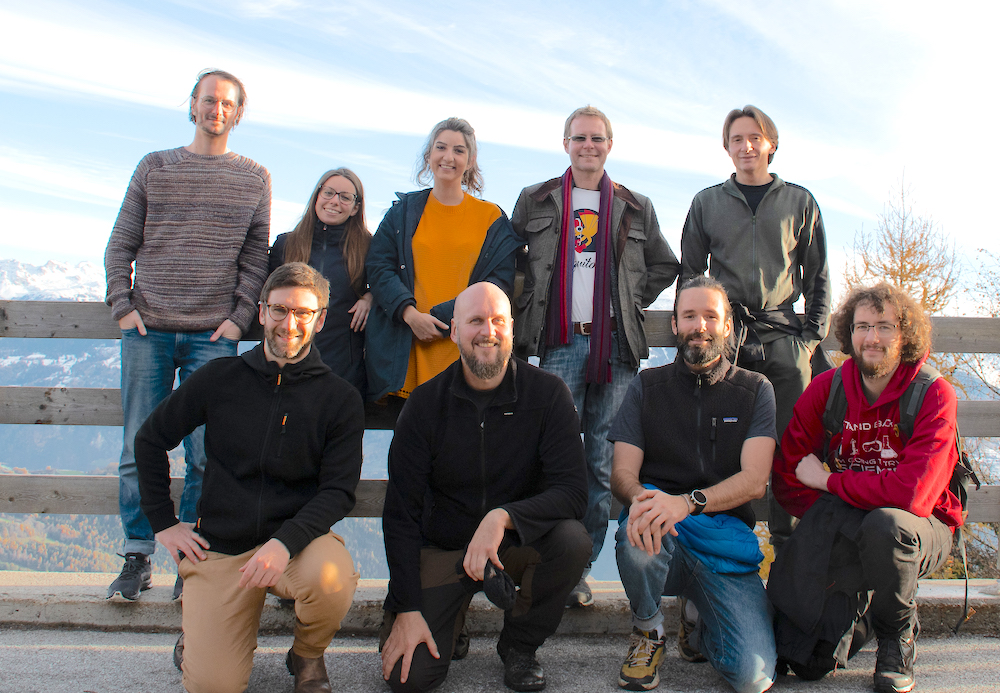
Elucidating gene evolution - gene function interactions through arthropod evolutionary and functional genomics
Evolutionary-Functional Genomics
While computational methods for predicting gene functions are improving, they often fail to provide biologists with the evidence required to design and perform comprehensive experiments that probe these putative roles in detail. Addressing these challenges, the group’s principal research aim is to develop quantitative measures of gene evolutionary traits and classify genes into multiple functionally-related categories in order to build reliable predictive models of the relationships between the underlying genetics and the observable biological traits. The goal of this framework is to identify genes with similar evolutionary profiles in order to expand hypotheses on genomic functions by predicting new members of biological pathways or processes based on shared evolutionary traits.
Arthropod Genomics
The focus of the group’s research is on computational comparative evolutionary and functional genomics of disease-vector mosquitoes and other insects: exploring the links between gene evolution and gene function through an evolutionary systems biology framework. In this regard insects and other arthropods have a lot to offer: with their countless adaptations to exploit many ecological niches they are ideal for investigating how conservation or divergence and gains or losses of functional genomic elements give rise to the splendour of animal biology. As falling sequencing costs improve genomic species sampling and enrich sources of functional data, the quantities and types of ‘observable features’ are growing rapidly. The challenge therefore is how do we best exploit these data to reach new levels of depth and detail in our understanding of biology?
Characterisation, Control, & Conservation
The incredible diversity of insects makes them fascinating to study, as models for processes like ageing and sociality, and because of their roles in human, livestock, and crop health as disease vectors, in agriculture as pests, pollinators, or bio-control agents, and more generally in ecology and environmental conservation. In striving towards our goals of building an evolutionary systems biology framework that accelerates the discovery of novel insect biology, the results of our research will provide biologists with the tools they need to apply this knowledge to the characterisation of animal biology, the control of disease vectors and pests, and the conservation of threatened insects and their ecosystems.
Find out more about the lab: http://rmwaterhouse.org/lab

Group leader
- Prof. Robert Waterhouse
Postdocs
- Dr. Harald Detering
- Dr. Antonin Thiebaut
Graduate Students
- Giulia Campli
- Romain Feron
- Livio Ruzzante
- Stefano Quaranta (visitor from the University of Pavia)
Staff
- Sagane Dind
- Christian de Guttry
Masters Students
- Wan-Ting Huang
- Rafael Saenger Irias
- Pauline Karega (Eastern Africa Network for Bioinformatics Training)
- Morgane Massy
Former Masters Students
- Eleonore Lavanchy
- Massimo Bourquin
- Tess Bonato
- Marianne Bachmann Salvy
- Audrey Daina
- Xiaojing Peng
- Arthur Royston
- Garance Sarton-Lohéac
- Alexandros Topaloudis
- Christopher Cedeño
- Kristine Jecha
- James Sheng Yi Tan
Former Group Members
- Blanche Dekeyzer (École normale supérieure de Lyon)
- Dr. Maarten Reijnders
- Boris Schnider
Informal applications to join the group are welcome at any time. Please send an email to Prof. Waterhouse with:
- Cover Letter – your motivation to join the group
- Curriculum Vitae – your experience to date, including publications

